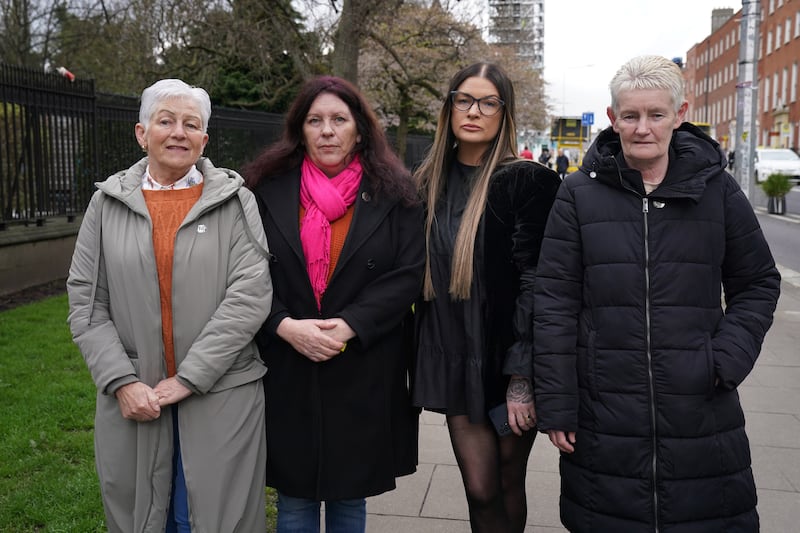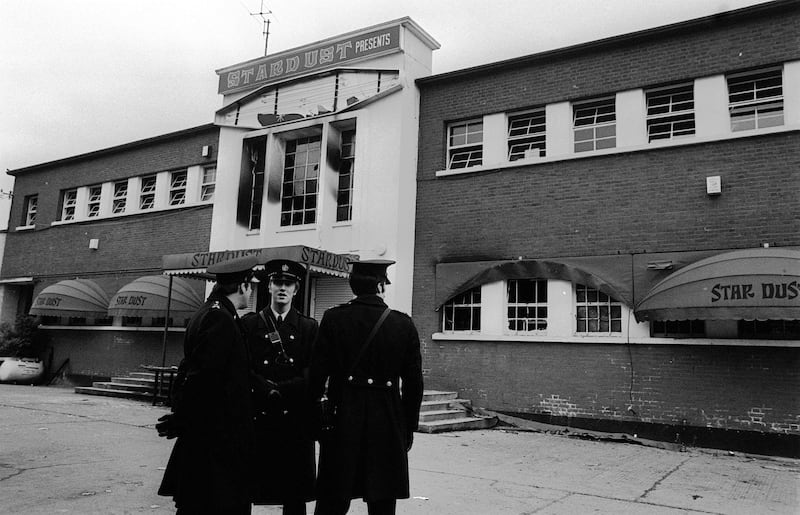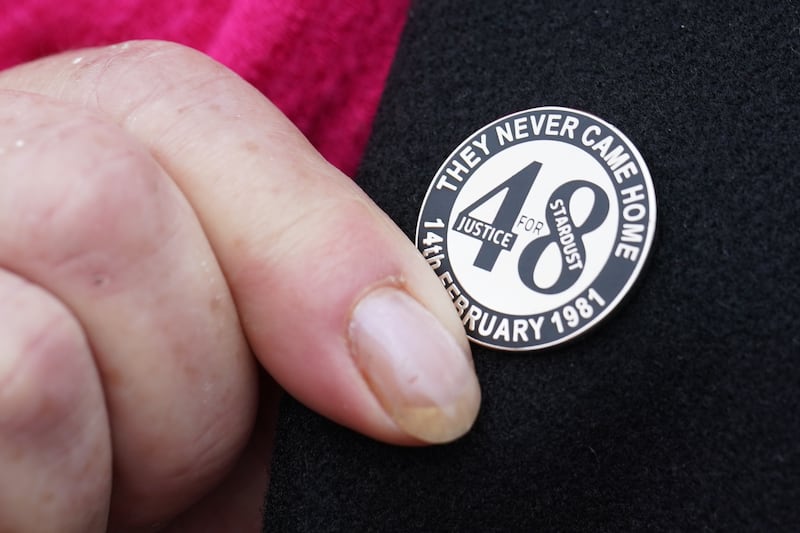A verdict of unlawful killing has been returned by the jury in the Stardust fire inquests for all 48 people who died in the 1981 Dublin nightclub disaster.
The devastating blaze at the Stardust nightclub in Artane, north Dublin, broke out in the early hours of Valentine’s Day 1981.
On Thursday, the jury foreman at Dublin District Coroner’s Court said it had reached the same verdict of “unlawful killing” for each individual.

Some family members of the victims jumped to their feet and clapped at the verdict, while some were moved to tears as they remained in their seat.
Others embraced each other as soon as the foreman said “unlawful killing”.
The jury determined that the fire originated in and started due to an electrical fault in the hot press in the bar.
It was unable to determine when the blaze started but said it was first seen outside the building between 1.20am and 1.40am.
Jurors said the fire was first seen inside the ballroom between 1.35am and 1.40am.
The jury determined that polyurethane foam within seating, the height of the ceiling in a west alcove of the building and carpet tiles on the walls were contributory factors to the spread of the fire.
However, it said the condition of the fire extinguishers was not a contributory factor.

The jury said that lack of visibility due to black smoke, a lack of knowledge of the layout of the building, toxicity of the smoke and/or gases, the heat of the fire, failures of the emergency lighting system, lack of staff preparedness, and the speed of the spread of the fire were factors that impeded exit.
Also asked if any of the deceased were impeded in their ability to exit due to locked, chained or otherwise obstructed exits, the jury said “yes”.
Asked if this was a contributory factor in any of the deaths, the jury also said “yes”.
The jury further recommended improved reviews of building regulations following the inquest.
After the verdicts were delivered, family members hugged their legal representatives. Others wiped away tears. One member of the jury became visibly emotional.
The coroner thanked the jurors for their service, stating that “the passing of years hasn’t diminished the horror of some of the evidence that you have heard”.
At that point, families of the victims stood up in unison and applauded the jury members at length, with one person shouting “thank you”.
Coroner Dr Myra Cullinane paid tribute to the “persistence and commitment” of the families who had campaigned for fresh inquests.
“To the families I acknowledge the deaths of these 48 young people is a source of ongoing grief to those who loved them and it remains the defining loss of their lives,” she said.
“However, I hope that family members will have taken some solace from the fact that these fresh inquests were held, that the facts surrounding the deaths were examined in detail, that moving testimony was heard from many of those involved in the events of the night and, most importantly, that you the families felt fully involved in proceedings, however difficult it was to hear all of the evidence.
“The fact that these inquests have been held at all is in no small part due to the persistence and commitment of families over the years.
“And, finally, we remember those 48 young people who lost their lives on that fateful night. It is their lives that we’ve sought to vindicate by way of these inquests.”
The decision of the jury came after the foreman told Dr Cullinane on Wednesday that majority verdicts had been reached after 11 days of deliberation.
The coroner deferred the delivery of the verdicts until Thursday so family members could gather at the coroner’s court to hear the result.

Directed by Ireland’s then-attorney general Seamus Woulfe, the inquests have been the longest held in Ireland, with proceedings commencing a year ago.
Speaking in Brussels on Thursday morning, Irish premier Simon Harris said: “I’m extremely conscious of the fact that this must be an extraordinarily difficult and emotional day for all of the families involved, people who have sought justice, answers and truth for such a long period of time.
“As Taoiseach, I certainly stand ready to interact and engage with those families.”
In the Irish parliament, Leaders’ Questions at noon began with Irish deputy premier Micheal Martin and Sinn Fein’s Pearse Doherty stating that their thoughts were with the families of those who died in the Stardust club.
“They have waited, as we all know, four decades for answers to what happened to their loved ones at that time, and they faced many, many obstacles including those put in their way by this state,” Mr Doherty said.
Mr Martin said: “My thoughts and all of our thoughts are with the families of those who died in the Stardust tragedy in 1981.
“This will be a huge moment for the families and indeed for the entire country because the Stardust tragedy is seared on the collective consciousness of the Irish people and the tenacity of the families and their success in securing this inquest has been a service to all in society.”








